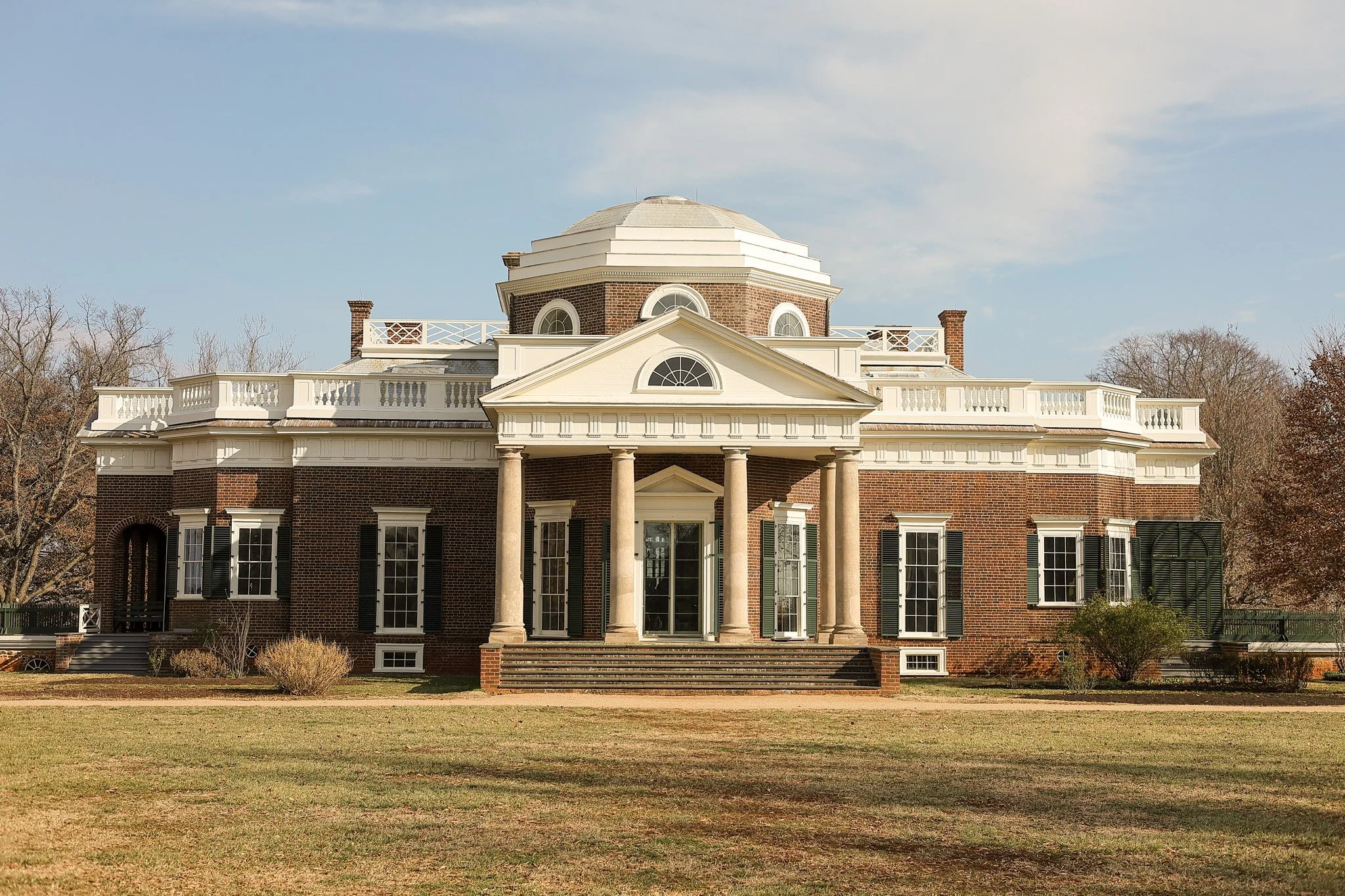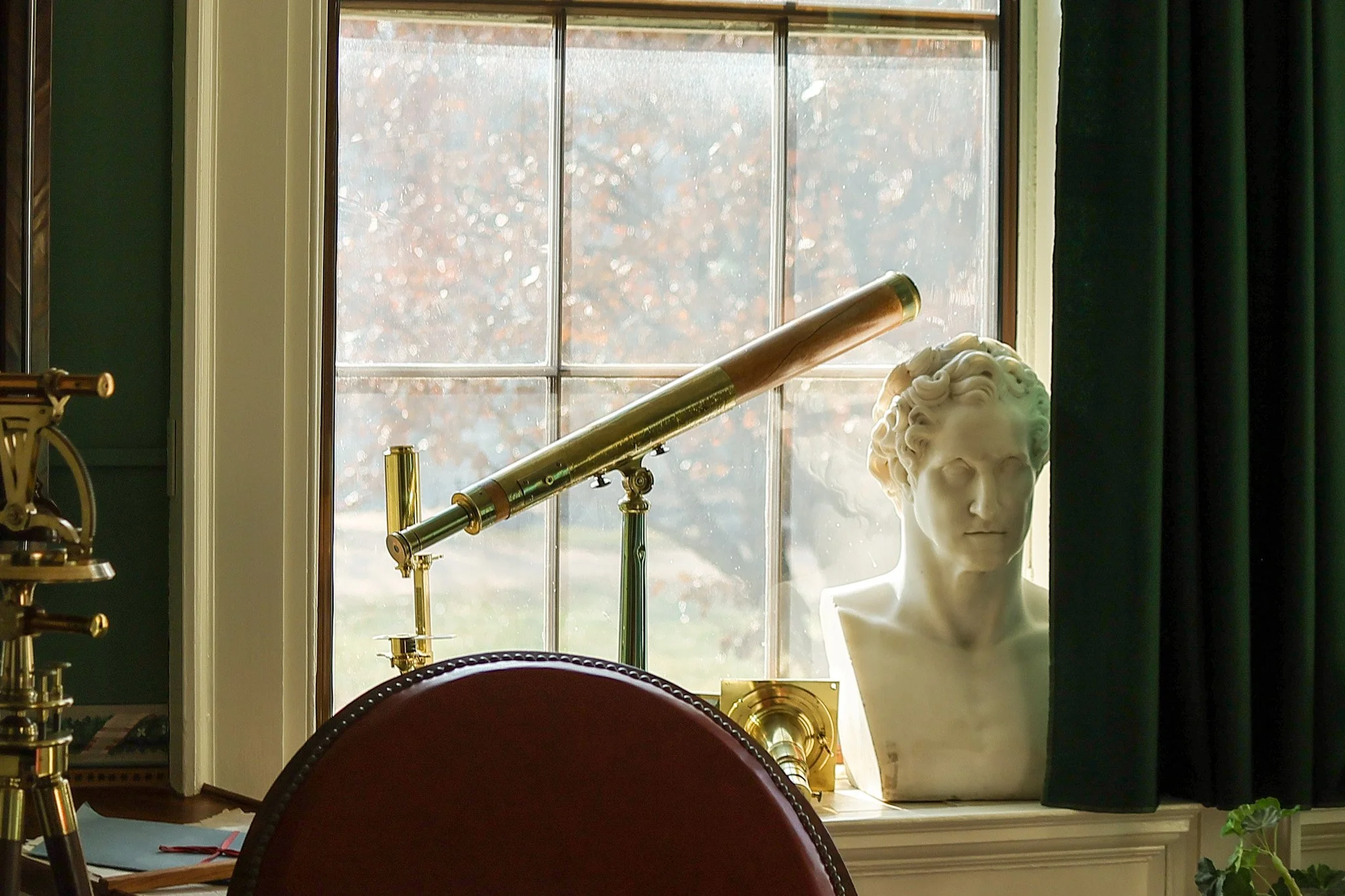SEPARATING THE GOLD FROM THE DROSS
Thomas Jefferson’s Monticello in Charlottesville, VA. Photo by JPP taken 12/2024.
“Say nothing of my religion. It is known to my God and myself alone. Its evidence before the world is to be sought in my life; if that has been honest and dutiful to society, the religion which has regulated it cannot be a bad one.”
Window in the library at Monticello. Photo by JPP 12/2024.
Imagine for a moment, Thomas Jefferson sitting in the library of Monticello with a scalpel and a Bible. Page by page, he puts blade to paper as he cuts away the miracles, the prophecies, the thunder of divinity. What remains is a small, almost fragile book: a thread of teachings about love, forgiveness, humility, and mercy. He titled it The Life and Morals of Jesus of Nazareth, though today it is referred to as simply The Jefferson Bible. To Jefferson, this was not destruction but liberation—the careful work of separating the “gold” from the “dross.”
The Jefferson Bible on display at The Smithsonian
Why would he do this? Because Jefferson never bowed to the notion of biblical inerrancy. He could not pretend that every word of scripture was flawless, dictated from heaven, untouchable by human error. He saw the Bible for what it is: a human record, stitched together across centuries, carrying both wisdom and weight, light and distortion. To claim perfection for it, Jefferson believed, was to sacrifice honesty on the altar of superstition.
And here is the heart of his reasoning—one that still startles when we imagine it in our own time. Let’s suppose for just a moment that Jesus had lived in more modern times and at the turn of the current century, in the year 2000, he is crucified: Just twenty-five years ago. As it stands now in the present year, not a single Gospel has yet to be written. The first won’t arrive until 2040. Others will follow decades later, not until 2050 or even 2070, long after eyewitnesses have vanished, after memories have softened, after stories have been retold so many times that fact and faith are braided together. Would anyone dare call those writings flawless? Would we expect perfection in accounts formed long after the moment had passed?
Yet this is the world in which the New Testament was born. Mark, the first Gospel, written forty years after the crucifixion. Matthew and Luke, drawing on what came before. John, last of all, written sixty to seventy years after the events it describes. Time had done its work, and human hands shaped the telling. Jefferson knew this. He refused to idolize the text while ignoring the truth of its making.
But Jefferson’s project was not cynicism. It was conviction. He believed faith belonged to the conscience of the individual, to that private space between a person and God. No priest, no church, no government had the right to dictate it. To compel belief was to hollow it out. Faith, to Jefferson, was real only when chosen, never when forced.
“It behooves every man who values liberty of conscience for himself to resist invasions of it in the case of others, or their case may, by change of circumstances, become his own. It behooves him, too, in his own case, to give no example of concession, betraying the right of independent opinion by answering questions of faith, which the laws have left between God and himself.”
That clarity rings louder now than ever. In our own time, when scripture is wielded like a sword in the halls of politics, when religion is pressed into the machinery of power, Jefferson’s scalpel feels prophetic. He reminds us: truth does not tremble before scrutiny. Faith does not need compulsion. Sacred texts are not diminished by admitting their humanity—they are only made clearer, sharper, more honest.
Jefferson’s Bible was not an act of desecration. It was a declaration: that beneath the spectacle lies substance, beneath the dogma lies a moral vision strong enough to stand on its own. The gold remains, if we have the courage to cut away the dross.



























